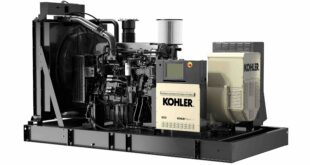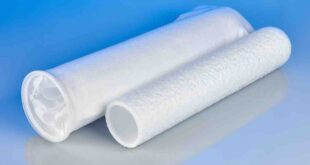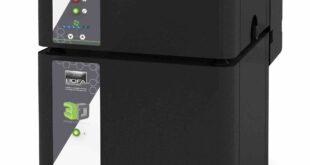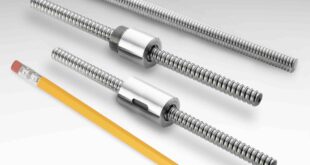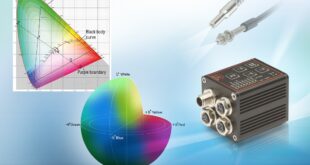To improve accuracy, repeatability, and manufacturing speed, adhesives and dispensing equipment specialist Intertronics has supported water testing equipment manufacturer Palintest.
The two companies worked together on the development of an automated liquid jetting system using a VERMES MDS 3020+ Microdispensing Valve, which has enabled Palintest to double the number of sensors it can manufacture per shift. Intertronics also built a custom development system to help Palintest more easily bring new products to market.
One key product line for Palintest is Kemio, a water testing system utilising patented single-use sensor technology. The product uses electrochemical sensors to test the concentration of chlorine, chlorine dioxide, chlorite or peracetic acid in samples, giving a clear pass or fail mark in 60 seconds.
Initially the manufacturing process included manually dispensing reagent onto sensors. Palintest invested in an automated system that was based on a jetting dispensing valve to improve accuracy, repeatability, and throughput. However, Palintest was experiencing problems with corrosion with the new valve. Following research, Palintest turned to Intertronics, for help. Intertronics worked closely with Palintest to customise and install a VERMES MDS 3020+ Microdispensing Valve that optimised the dispensing process and with no corrosion. To enable easier transition into production for new products, Intertronics built a development machine that replicated Palintest’s updated production system, combining the VERMES valve with a Fisnar dispensing robot and vision system.
“Anything in the material path had to be compatible with Palintest’s reagents,” explained Paul Whitehead, Strategic Accounts Manager at Intertronics. “We recommended a valve with a ceramic tappet combined with coated carbide tips. Trials found that this combination did not react with the reagents and there was no corrosion.”
“Intertronics were extremely receptive to what we needed, and from first contact it was clear they were willing to come on the journey with us,” explained Samantha Lunn, Sensor Development Manager at Palintest.
“Our new automated system has enabled huge growth in our manufacturing output, we can produce up to 24,000 sensors each day, compared with under 10,000 on the previous line,” added Matthew Hentley-Richold, Production Manager at Palintest. “We’ve increased our stock levels, meaning we can fulfil customer orders faster, and scope out future expansion in our operations with a possible second production line.”
Jetting valves provide non-contact dispensing with a high degree of accuracy and repeatability, because of their ability to apply ultra-low volume deposits of material at high speed. The VERMES MDS 3020+ can dispense medium viscosity materials up to 8,000 mPas in repeatable single dots of ≥5 nl at up to 3,000 times per second.
 Engineer News Network The ultimate online news and information resource for today’s engineer
Engineer News Network The ultimate online news and information resource for today’s engineer

